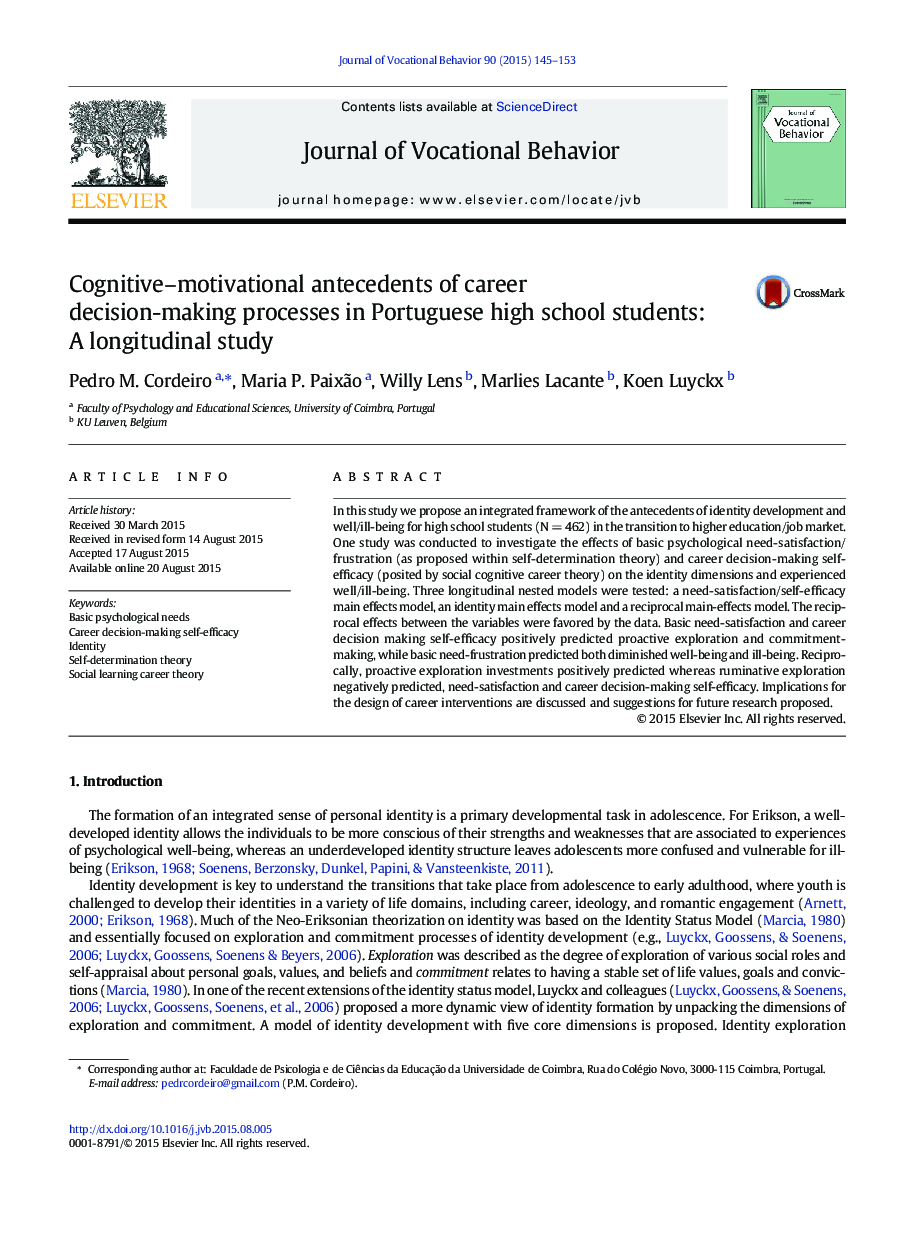| Article ID | Journal | Published Year | Pages | File Type |
|---|---|---|---|---|
| 886726 | Journal of Vocational Behavior | 2015 | 9 Pages |
•We investigate the effects of basic needs and career decision-making self-efficacy on identity and well/ill-being.•Need-satisfaction and career decision-making self-efficacy positively predict proactive exploration and commitment-making.•Basic need-frustration predicts both diminished well-being and ill-being.•Proactive exploration positively predicts need-satisfaction and career decision-making self-efficacy.•Ruminative exploration negatively predicts need-frustration and ill-being.
In this study we propose an integrated framework of the antecedents of identity development and well/ill-being for high school students (N = 462) in the transition to higher education/job market. One study was conducted to investigate the effects of basic psychological need-satisfaction/frustration (as proposed within self-determination theory) and career decision-making self-efficacy (posited by social cognitive career theory) on the identity dimensions and experienced well/ill-being. Three longitudinal nested models were tested: a need-satisfaction/self-efficacy main effects model, an identity main effects model and a reciprocal main-effects model. The reciprocal effects between the variables were favored by the data. Basic need-satisfaction and career decision making self-efficacy positively predicted proactive exploration and commitment-making, while basic need-frustration predicted both diminished well-being and ill-being. Reciprocally, proactive exploration investments positively predicted whereas ruminative exploration negatively predicted, need-satisfaction and career decision-making self-efficacy. Implications for the design of career interventions are discussed and suggestions for future research proposed.
